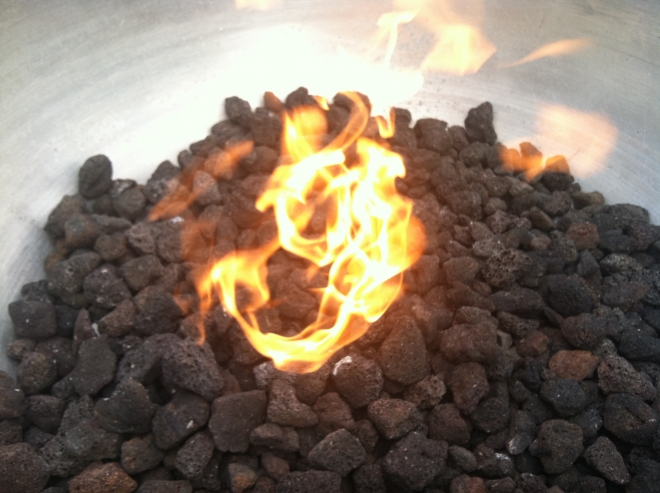
Emotions
Fiery Rage
Fire is sometimes associated with rage and the symbol is a good one. Fire is intense, hot, powerful, and can leave a charred path of destruction behind it. I was considering the metaphor of fire to help people dealing with unwanted feelings of intense anger and came upon the idea of forest fires as a good way to explain some important psychological principles for how to better regulate this powerful emotion.
An interesting point to consider is that the health of the forest as a whole is actually dependent upon forest fires from time to time. Fires can be cleansing and actually create the conditions for new growth by breaking down important nutrients bound up in chemical compounds. If fires were extinguished right away and not allowed to play themselves out the entire ecosystem would become sick and finally die. This idea seems counterintuitive to many of us because when we think of raging fires we tend to think about destruction rather than renewal.
If you think of yourself as the forest and your anger as the fire, we have a great metaphor to work with to show that constantly extinguishing your anger before it gets the chance to burn will ultimately lead to the deterioration of your psyche. The problem of course is that unchecked rage usually leaves a lot of damaged human relations and other wreckage in its wake. That’s why a controlled burn is the ideal when managing forest fires. The fire gets to play itself out and helps renew the ecosystem but it is kept within certain boundaries.
Giving yourself permission to express your rage while minimizing the damage done to those around you is the mindful way to regulate your anger and ultimately use it for growth and renewal. You’ve got to be very skeptical of any program that promises to make your anger disappear because it’s an important part of the emotional spectrum and has a great deal of evolutionary value. Anger is the correlate to reactive hostility, which is where someone wrongs us or violates us in some way and we feel compelled to defend ourselves and fight back. This is psychologically healthy and those without the instinct would not have had much of a chance to pass on DNA.
The problem of course is that rage often burns out of control, it is directed at people who don’t deserve it, or it is no longer a healthy reaction to being wronged but exists independently. It can feel really good to be mad and for some the state is addictive. They get things done, they feel powerful and in control. But ultimately the fire burns too much of the forest and leaves nothing but scorched earth behind it.
People who are trying to regulate their rage often find it helpful to mindfully consider when they feel it rising up in them and instead of trying to contain it, let it out in a space free of other people like the inside of their car or their bedroom. Once they have expressed it they mindfully think about if their anger stems from an actual wrong, and if so to whom this anger should be directed. Finally they seek out this person while in a less emotionally volatile state and air their grievance without the intense heat of rage behind it. This lessens the risk of hurting the relationship and more often then not results in a greater connection between the two people where psychological needs are more clearly understood. In this way the fire of anger is cleansing and clears the way for new growth.
Related posts:
- Anger As A Chimney Fire We’ve written about why some people like being angry. If you’re struggling with anger management issues you probably used to like being angry too, and maybe in many ways you still do, which means you’ve got to consciously address your ambivalence around moving to a more adaptive way of being in the world. At first […]...
- Anger As A Fire A fire can be a beautiful thing to look at but if you add too much fuel it grows unruly before getting completely out of control and becoming quite dangerous. We could say the same thing about anger. We all know it feels good to be angry sometimes. That burning need to right some wrong […]...
- About To Explode It’s not like most people with anger management issues don’t know they have these issues. What’s interesting to note though is that the environmental damage their anger causes, the explosive outburst where they say or do destructive things, is actually first and foremost their attempt to deal with their anger and only secondarily a consequence of […]...
- Sadness and Anger Anger and sadness have an alliance. One emotion often stands in for the other in situations where consciously experiencing the proper one feels threatening. This ability we have to shift away from the authentic emotion in order to protect ourselves can lead to a lot of problems in general functioning and in our human relationships. […]...
- Some People Like Being Angry The evolutionary purpose of anger is to make us aware that our interests are being trampled upon while giving us the energy and motivation to make things right. Anger is fiery, it winds us up like a spring, it primes us to act. And when we do act we feel powerful, righteously indignant, like avenging […]...
- Venting Anger A common strategy that Western psychologists use to help people with anger management issues is to instruct them to vent their anger once in a while in a safe space. Maybe they head out to the garage, get in their car, and scream their heads off. Or maybe they punch a stuffed animal or some […]...
- Anger Your anger can be a gift or a curse, and it all depends on you. Many come to therapy on their own or are referred by someone else because they are labeled as ‘angry’ and either want to change or are urged to change by those close to them. But the idea of an ‘angry […]...
- Anger Is Only Hurting You There was a tragic scene at the end of a Dr. House episode where Wilson’s girlfriend Amber, who had been in a terrible accident, was woken up only to be told there was no longer anything that could be done to save her. As soon as they took her off of bypass she would die. […]...
- Romantic Relationship As A Campfire First you need the spark, then the whole thing flares up. It appears to be a solid fire but it will quickly die out if you don’t add the nutriments it really needs. If you’re attentive you’ll get a really good fire going, those hot embers will start to glow. Then it’s just a matter […]...
- Ambivalence Around Anger Issues It might sound counterintuitive but if you are struggling with anger issues you’ve got to isolate all the positives, all the things your anger does for you, all the areas in your life where it helps you and supports your endeavors. Regardless of the proposed lifestyle change there is always going to be ambivalence, simultaneous […]...
- Dealing With Anger I was recently asked how to deal with clients when they are really mad. I think this is a worthwhile topic because all of us find ourselves in situations with people who are extremely angry sometimes. The common responses are usually to shy away from the encounter or meet it head on and get angry […]...
- Frustration And Anger To most people frustration and anger seem inextricably intertwined, almost one and the same thing, just sort of a ball of negative emotions. But from our existential point of view when frustration and anger are found together it’s frustration that actually appears first, as its own entity. Anger can be understood as the solution to […]...
- Choose Love Over Anger In The Face Of Injustice We have the right to be outraged when norms, values, and rights we hold dear are maliciously trampled upon. And anger is a powerful, powerful motivator, no doubt about it. That rising tidal wave of rage makes us keen to act, keen to go out into the world to right the perceived wrong in order […]...
- Energy of Mindfulness Thich Nhat Hanh teaches that the energy of mindfulness is what allows you to transform emotions you don’t want like fear, anger, or loneliness into emotions you do want. The energy of mindfulness wraps around that other energy, much like the way a mother goes to a crying baby and tenderly embraces her, and instantly […]...
- Anger And Vulnerability Anger Makes Us Feel Powerful Especially for males in our society the expression of anger often acts as a mask for the threatening sense of vulnerability underneath. This is classic reaction formation, which is the tendency of a repressed wish or feeling to be expressed at a conscious level in a contrasting form. Anger acts as […]...
- Road Rage Whenever I see road rage and am not directly involved I can’t help but shake my head and laugh to myself at the ridiculousness of the situation. Could there be a response more out of whack with the actual provocation? Can you imagine a similar scenario between two people at an office or school? “I […]...
- Wronged Many people who were wronged by a primary caregiver or other significant person hold on to bitterness, resentment, anger, and other painful emotions for years or even decades. Letting go is easier said than done. An idea that can be really helpful to make the conscious decision to move towards closure is that keeping these […]...
- Warriors For Peace People who haven’t done the very exhausting work of emotional and intellectual development tend to consider peace to be a passive state. Peace is not a passive state, it is the most active of states. Where the warlike attitude is lazy, allowing for the quick release of stored up psychic energy in the form of […]...
- Colorado Movie Theater Shooting In the wake of the recent Colorado movie theater shooting public reaction has been understandably heated. Our goal in this article is to elucidate the existential phenomena that add powerful fuel to the already justified rage felt in the face of a murderous act perpetrated against innocent victims. First a difficult truth to swallow. You […]...
- On The Verge Of Exploding People who are trying to control their anger sometimes feel like powder kegs, like they’re always on the verging of exploding. They realize that, in the grand scheme of things, it’s relatively small frustrations that tip them over the edge, but this insight doesn’t help much in the moment against that steam pressure already built […]...




